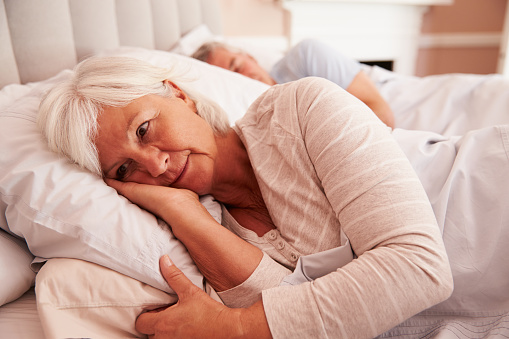A common complaint I see in my practice is difficulty sleeping. While there can be many reasons for a person to have difficulty falling asleep or staying asleep at night, there are also many little things in our day-to-day activities that can directly influence our ability to get a good night’s sleep. For this reason, I always take time to talk to my clients about their sleep hygiene. The first question I am always asked when I bring up the topic is, “What is sleep hygiene?” An excellent question – let me explain. The term “sleep hygiene” is really just a fancy, jargon-y term used to describe a person’s sleep habits and his or her behaviour before and after going to bed (as well as his or her behaviour during the day) that may have a negative impact on night time sleep. More often than not, we inadvertently do things during the day (and even at bedtime) that cause sleep to allude us. So what exactly are some of these sleep-stealing factors? Let’s go over some of the main things to do, or avoid doing, in order to get a good night’s sleep.
Set regular sleep/wake times. Most of us relish the chance to sleep in on the weekends, or whenever we do not need to get up at our usual time. However, research has shown that one of the best ways to ensure a good sleep pattern is to make sure you not only go to bed at roughly the same time each night, but also that you get up at the same time each morning, even on weekends. This is because it helps keep your body’s biological rhythms in sync, and once set it will make it much easier to go to sleep at night and wake up in the morning.
Limit (or eliminate) caffeine after 2 or 3 pm, depending on your sensitivity. This means avoiding not only coffee, but also most colas, teas (including green tea, which is often caffeinated), energy drinks, and chocolate. It is also worth being aware that certain medications also include caffeine, although you should not avoid taking prescribed medications unless on the advice of your physician. Nicotine also has a stimulating effect and can make it hard to fall asleep.
Limit (or eliminate) daytime napping. Although it might seem like a nap is the only way to make it through the day sometimes, napping during the day actually makes it harder for your body’s natural sleep rhythm to lull you off to sleep at night. If you absolutely must take a nap, try to limit it to less than 1 hour (set a timer if need be), and try to take it in the morning.
Only go to bed when tired. As much as you should try to ensure you go to bed at the same time each night, there may be times when you are just not tired at bed time. Going to bed when you are not sleepy often results in you just lying awake in bed, waiting for sleep. Unfortunately, while we may rationalize it by saying, “Well, at least I’m resting”, our brain and body interpret such situations as, “Bed is a good place to be awake.” As a result, we start to get conditioned to be awake in bed. Instead, we want the brain and body to be conditioned that bed is a place to sleep. So, if not tired when bedtime rolls around, try engaging in a quiet, non-stimulating (possibly even boring) activity until you begin to feel drowsy and then go to bed. Try going to bed at your regular time the next night.
If you get into bed and are unable to fall asleep after 20 minutes, get out of bed. This may seem counterintuitive – “If I want to sleep, I should stay in bed because otherwise I’ll never sleep” – but it all relates back to the points raised in #4 above. We want the body to be trained to sleep in bed; if you are lying awake in bed, your body and brain are learning to associate being in bed with being awake. So, if it seems like 20 minutes has passed (no clock watching!) and you have not fallen asleep, get out of bed, go into another room, and engage in a quiet, non-stimulating activity (e.g., watching old re-runs on TV, read a book/magazine, listen to quiet music – any activity that will help you relax and make you feel drowsy). Once you begin to feel drowsy, go back to bed. If you are unable to fall asleep again, get up again and engage in another (or the same) quiet, non-stimulating activity; repeat, repeat, repeat until you are able to fall asleep in bed. It may take a few days but your body will begin to reset itself and make the connection that bed is for sleeping and your quality of sleep will improve. Remember: it is the quality of sleep that is important, not the quantity.
The bed is for sleeping. Try to make sure that your bed is only used for sleeping and sex – it is not a place to pay bills, watch TV, eat, or catch up on computer work. Using your bed for anything other than sleep or sex weakens the body’s association between the bed and sleeping.
Avoid exercising 3-4 hours before bed time. Physical activity revs up the heart rate and blood pressure, which is great for waking up the body in the morning but not so great when you are trying to wind down at the end of the day.
Limit alcohol in the evenings, and do not use it as a “sleep aid”. While many people report that a few drinks (or even just one drink) makes them drowsy and helps them fall asleep at night, alcohol actually has a detrimental effect on the quality of sleep and often leads to mid-night awakenings and/or more frequent and lengthy mid-night awakenings.
Don’t watch the clock. It is common for people with difficulty sleeping to watch the clock and report in exasperation, “I’ve been awake for 3 hours already – I’ll never fall asleep!” or “I only got 4 hours sleep!” In fact, frequently checking the clock can actually wake you up more and can lead to anxious thoughts about the amount of sleep you are getting, which in turn can make it harder to get to sleep.
If you find it hard to fall asleep due to racing thoughts and difficulty “turning off” your mind at night, then anxiety may be at the root of your sleeping troubles. Some first steps to try helping anxiety-related sleep difficulties include:
Deep-breathing exercises, relaxation exercises, or meditation prior to going to bed. There are many books, videos and audio recordings available online, or at your local library or book store that provide step-by-step instructions on various relaxation techniques.
Engage in any activity you find relaxing and non-stimulating for 1-2 hours prior to going to bed. This could be reading a book, relaxing in a warm bath, sipping an herbal or caffeine-free tea, etc.
Do not engage in any anxiety-inducing or stressful activities 1-2 hours prior to going to bed. This includes such things as paying bills or catching up on office work.
If you worry about all the things you have to do and worry that you will forget some of the things on your To Do list, write them down and then put the list away. Once each item is written down, you can write beside each one the absolute deadline for when that item must be completed and prioritize which items can be put off for a bit longer (e.g., bills must be paid by date X, but not mopping the kitchen floor today is probably not going to end the world).
If you find that you are still having trouble falling asleep or staying asleep even after following these strategies for improved sleep hygiene and quieting a racing mind, then it may be time for more concentrated treatment aimed at getting to the root of your sleep difficulties and/or any mood or anxiety problems that may be contributing. A sleep study may also be beneficial for learning more about your sleep patterns and for ruling out any underlying sleep disorders such as sleep apnea or restless leg syndrome.
Hopefully these tips and strategies can help you get a better night’s sleep. If I can further help you clean up your sleep hygiene and assist with sleep difficulties and related anxiety, let me know and we’ll get to work!


Recent Comments